Reviews
Sini Anderson
USA, 2013
Credits
Review by Victoria Large
Posted on 02 May 2013
Source digital projection
Categories The 2013 Independent Film Festival Boston
The Punk Singer, Sini Anderson’s new documentary about Bikini Kill and Le Tigre frontwoman Kathleen Hanna, opens with old footage of Hanna in the midst of a fierce spoken word performance. “I’m your worst nightmare come to life!” Hanna shouts while performing the piece, “Cus I’m not gonna shut up!” Anderson’s film goes on to celebrate Hanna’s continued refusal to shut up — as demonstrated through her outspoken activism and highly political music — and to examine why Hanna moved away from live performances after Le Tigre’s final tour in 2005. Rich with interviews, performance footage, and some very intimate glimpses into Hanna’s personal life, The Punk Singer is an engaging film that should appeal to the uninitiated as well as hardcore fans of Hanna’s work.
In the early going, the film understandably runs through Hanna’s days at Evergreen State College and her decision to switch from spoken word to rock and roll. (A writing teacher advised her that people don’t go to see spoken word performances—they go to see bands.) Anderson chronicles the formation of Bikini Kill and the publication of the famous “Riot Grrrl Manifesto” as well as Hanna’s call for “Girls to the front” at Bikini Kill shows. This section is well put-together, and a handy primer for the uninitiated on Bikini Kill — and, by extension, the riot grrrl movement and Third Wave Feminism — even if it is fairly conventional by punk doc standards, liberally peppered with impassioned talking head testimonials about the significance of the music.
But Bikini Kill is just the beginning of Hanna’s complex story, and Anderson does a fine job of providing illuminating personal and social context for Hanna’s subsequent projects, including a lo-fi solo record (released under the name Julie Ruin) and work with the New Wave-inspired band Le Tigre. Hanna also opens up about her private life as the film goes on, including her unlikely romance with erstwhile Beastie Boy Adam Horovitz and its ensuing insecurities. (Recall the Beastie Boys’ 1987 hit, “Girls,” with lyrics like, “Girls, to do the dishes/Girls, to clean up my room/Girls, to do the laundry/Girls, and in the bathroom.” Hanna and Horovitz’s public personas did not initially mesh.) Hanna and Horovitz — now married — are candid and endearing, yet not cloying, when they discuss their relationship, and their unguarded interviews provide much of the film’s heart.
When Anderson at last fully broaches the subject of Hanna’s departure from the spotlight — a decision rooted in the singer’s battles with serious illness on tour and beyond — Hanna and Horovitz’s bond takes on added poignancy. In one harrowing segment, Horovitz films an ailing Hanna (at her request) while she is immobilized by her symptoms. (He joking suggests that they do a few more takes.) But while the film does spotlight the support that Hanna receives from friends and loved ones while coping with illness, it also insightfully examines the difficulty that the singer has with admitting that she needs any help.
Accustomed to fearlessly prowling the stage at rock shows and asserting her individual strength, Hanna at first cannot even publicly admit that she is ill. There’s something deeply human and universal about Hanna’s hesitance in revealing her (in this case physical) vulnerabilities, and knowing her past reticence in discussing the matter makes it all the more powerful when she does open up to Anderson in an interview, growing tearful over the prospect of illness keeping her from singing. While Anderson begins the film by recounting the exploits of Kathleen Hanna the legend, by the end, we’re perhaps even more gripped by the story of Kathleen Hanna the human being. After hearing (and seeing) that story, most audiences will be pulling hard for Hanna to fulfill that early spoken word promise of never shutting up. Anderson’s film is unabashedly a tribute to Hanna, but the director proves most adept at showing her audience why such a tribute is justified.
More The 2013 Independent Film Festival Boston
-
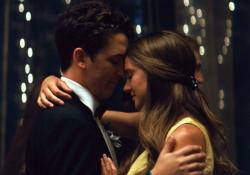
The Spectacular Now
2013 -

Remote Area Medical
2013 -

The Punk Singer
2013 -
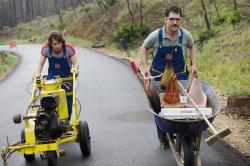
Prince Avalance
2013 -
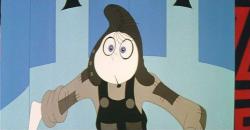
Persistence of Vision
2012 -

Much Ado About Nothing
2012 -
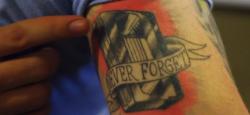
Rewind This!
2013 -
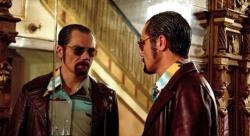
The Iceman
2012 -
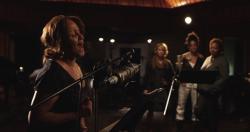
Twenty Feet From Stardom
2013 -
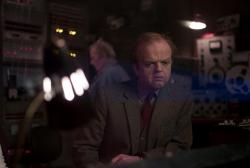
Berberian Sound Studio
2012 -

The Act of Killing
2012 -

In a World…
2013 -
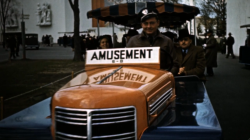
World Fair
2013
We don’t do comments anymore, but you may contact us here or find us on Twitter or Facebook.



